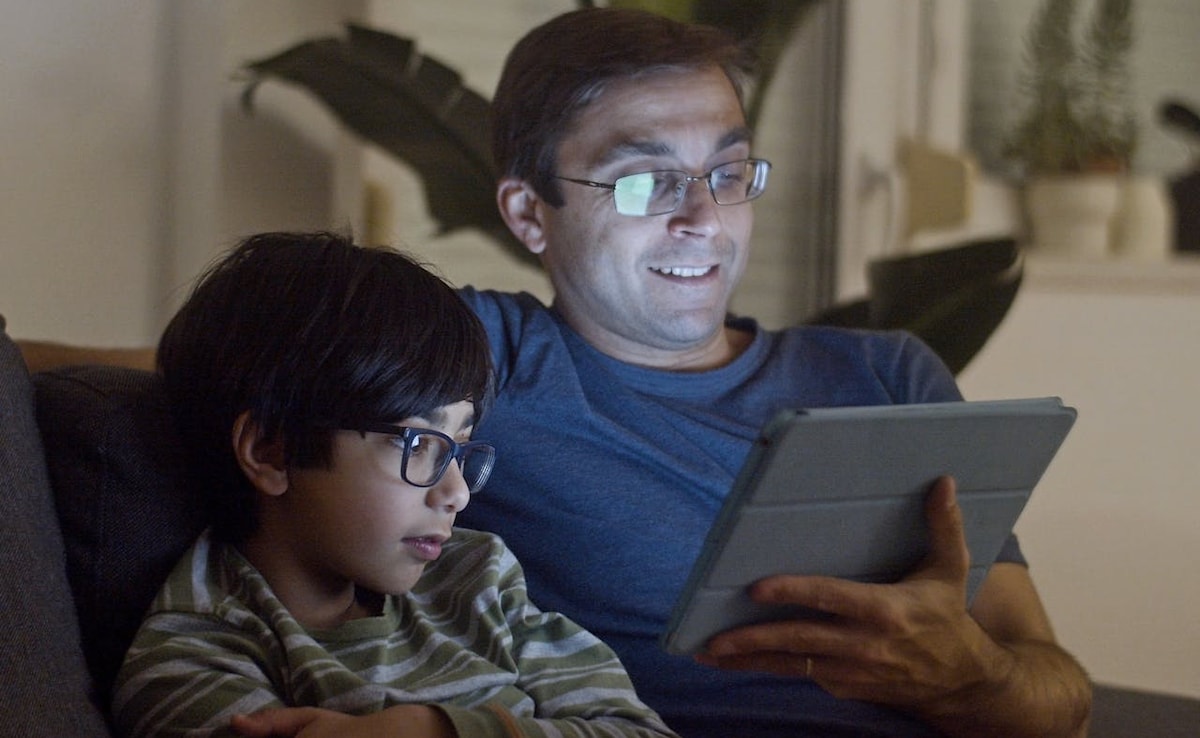
In today's digital era, children multitask between smartphones, online classes, gaming, and streaming, even during homework breaks or before bedtime. But what if this ever on screen exposure isn't just affecting their focus or mood, but their heart health too? A new study published in the Journal of the American Heart Association sounds this alarm: each extra hour of leisure screen time, be it scrolling social media, binge watching, or gaming, pushes up cardiometabolic risk in kids and teens. For Indian parents juggling school schedules, tuitions, and digital distractions, this study rings particularly relevant. It's not just an abstract Western problem-it's a global wake up call.
So, let's dive deep into the research, break down the heart health ripple effects for Indian families, and walk you through practical, culturally attuned strategies to reduce screen time and support healthy sleep and routines. Read on to know how small tweaks today can safeguard our children's hearts for decades to come.
Understanding The Study: What Was Discovered?
Researchers used two Danish longitudinal cohorts totalling over 1,000 mother child or adolescent pairs (COPSAC2010 and COPSAC2000). Screen time was parent reported or self reported; sleep and physical activity were objectively measured using accelerometers over a two week span. Cardiometabolic risk (CMR) was computed using five markers-waist circumference, systolic blood pressure, HDL (good) cholesterol, triglycerides, and blood glucose.
Key findings of the study:
- Each extra hour of screen time raised cardiometabolic risk by around 0.08 standard deviations in children (6-10 years) and roughly 0.13 in adolescents (18 years).
- Sleep played a crucial role because children with shorter or later sleep schedules showed significantly stronger risk ties.
- Sleep duration mediated around 12% of the screen time cardiometabolic risk link, highlighting that better sleep can buffer some harm.
- A distinct "screen time fingerprint" of 37 blood-based biomarkers (metabolomics signature) was identified, offering a biological signal connecting screen habits to metabolic changes.
- Adolescents also showed higher predicted 10 year adult cardiovascular disease risk based on that signature.
- The study is observational-not proving causality, but showing dose dependent associations and rich mechanistic insights.

Regulating your children's screen time is crucial for their long-term health
Photo Credit: Pexels
Why This Study Matters For Indian Parents And Kids
Though the data are Danish, the findings resonate across geographies, including India. Screen time among Indian children has surged (especially thanks to the increase in online classes and smartphone usage since 2020), sleep is often compromised, and cardiometabolic issues like childhood obesity and insulin resistance are rising. Here are a few more links that can be clearly made between this study and global as well as Indian kids' habits.
- Sedentary habits are heart harmful: This and previous studies have shown sedentary screen time contributes to increased heart weight and structural changes, even when body weight and blood pressure remain normal.
- Sleep disruptions add to risk: Screens before bed, common in Indian households where family dinner time is also often spent in front of the television, delay sleep onset via blue light and overstimulation, worsening metabolic outcomes.
- Language and development: Excessive screens, especially in early years, undermine face to face interaction and cognitive development and academic readiness, all aggravating the broader picture.
Practical, Friendly Tips To Reduce Screen Time And Boost Heart Health In Children
If you, as a parent or guardian, want to reduce your children's screen time and simultaneously boost heart health, then here are a few easy, practical and yet, friendly ways to do so:
Set daily screen time limits
Keep children's leisure screen time under two hours per day, excluding school-related use. This helps in lowering their cumulative exposure. Another friendly trick? Allow screen time for specific shows or cartoon slots in your chosen language, so it doesn't spill over into hours of aimless scrolling.
Create screen-free zones and times
Identify parts of the day or areas in your home where screens are not allowed-such as the dining table, during prayers, meditation or exercise hours, or before bedtime. Establishing a "no phone during chai time" or "family lunch = no devices" routine can work wonders.
Avoid screens at least one hour before bedtime
This allows melatonin (the sleep hormone) to function properly, promoting deeper sleep. Instead of TV or mobile devices, switch to story time in your child's mother tongue, light reading, or calming music-habits that also support emotional bonding.
Encourage outdoor or indoor active play
Physical activity helps burn off sedentary time and improves heart function. For younger kids, make time for games like skipping rope. If outdoor space is a problem, even dancing to your family's favourite tunes at home helps.

Be a role model and lead by example; reduce your own screen time
Photo Credit: Pexels
Be a role model and limit your own screen time
Children mimic what they see. If you're constantly on your phone, they'll assume it's normal. So, during family time, put your phone away. Instead, cook together, play a board game, or go for a short family walk. Lead by example.
Promote hands-on hobbies and quiet time
Offer your child alternatives to screen-based entertainment. Encourage art, building blocks, puzzles, colouring, local crafts, or DIY activities like drawing a comic strip or writing their own short story. This not only limits screen time but boosts creativity.
Use parental controls smartly
Many phones and tablets come with built-in parental controls. Set daily screen limits or schedule "downtime" on devices.
Prioritize good sleep hygiene
Since sleep plays a big role in offsetting the harms of screen time, ensure your child goes to bed and wakes up at regular times, even on weekends. Keep bedrooms screen-free and create a calming bedtime routine like a warm bath or simple prayers.
Communicate openly-not just rules, but reasons
Instead of commanding "no phone!", explain why. Use simple language: "Our hearts grow stronger when we play, move, sleep well, and don't stare at screens too much." The more kids understand the why, the more they'll cooperate with the how.
A Note on Holistic Heart Health
Beyond screens, combine healthy meals (local fruits, dals, millets), regular movement, and stress free routines like family walks or storytelling time. As highlighted before, earlier onset of metabolic disease calls for integrated approaches and screen limits are an entry point to broader heart healthy lifestyles.
This study offers an early warning, but also hope. By trimming screen time and nurturing sleep and active routines, parents can safeguard their kids' hearts both now and for the long haul.
Disclaimer: This content including advice provides generic information only. It is in no way a substitute for a qualified medical opinion. Always consult a specialist or your own doctor for more information. NDTV does not claim responsibility for this information.
Track Latest News Live on NDTV.com and get news updates from India and around the world

